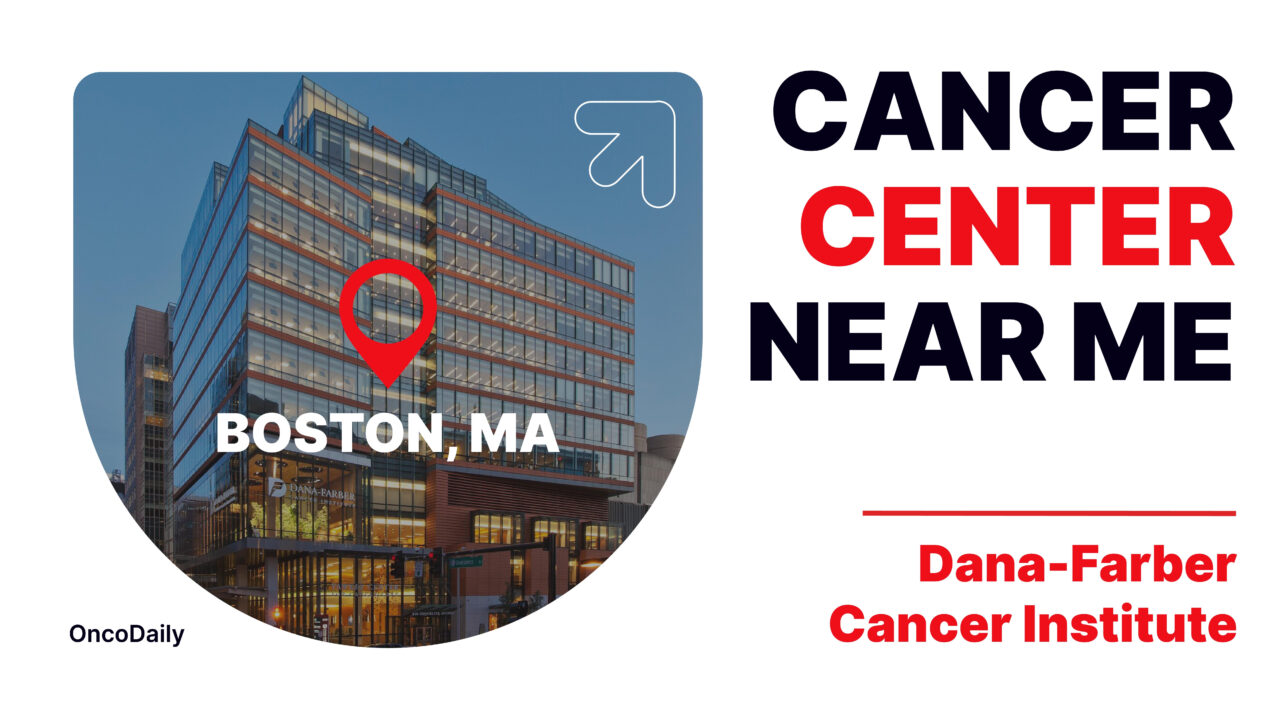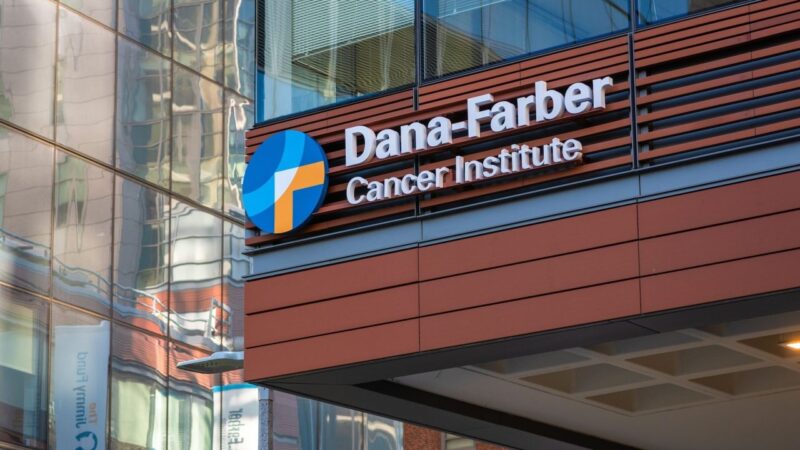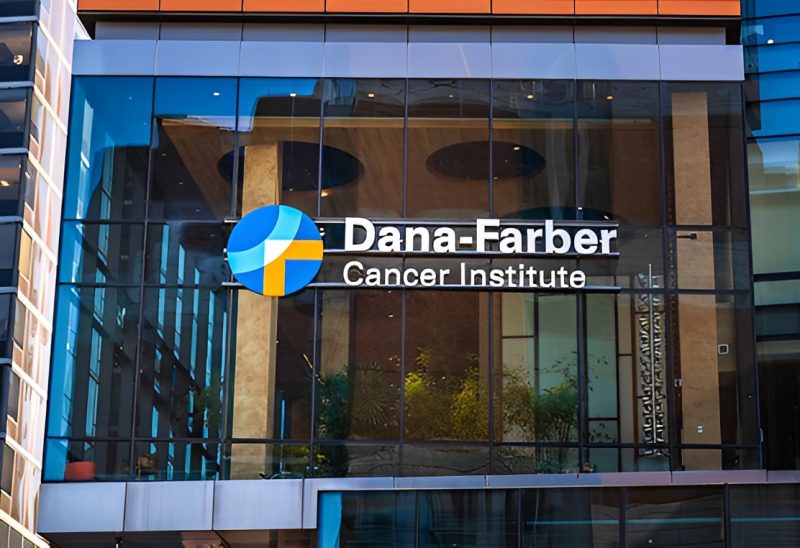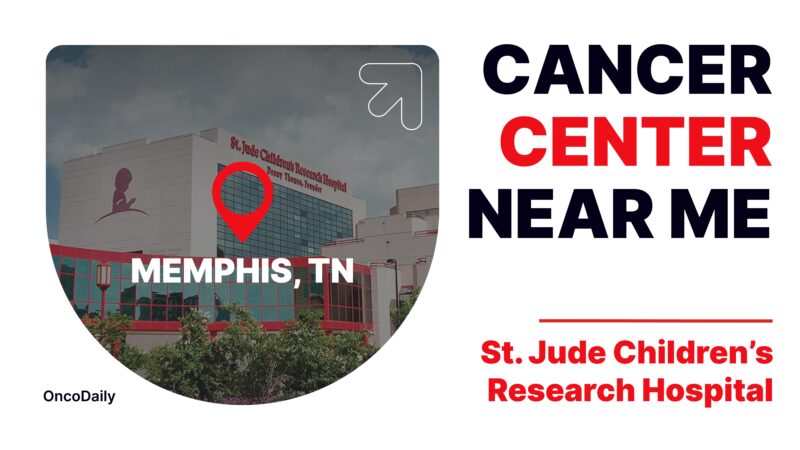
Cancer Center Near Me: Dana-Farber Cancer Institute
Finding a trusted cancer center near you is a critical step in ensuring high-quality care and access to advanced treatments. Dana-Farber Cancer Institute stands out as a leading example, renowned for its cutting-edge research, comprehensive care, and dedication to improving patient outcomes. Located in Boston, Massachusetts, Dana-Farber is affiliated with Harvard Medical School and is an NCI-designated Comprehensive Cancer Center. It offers specialized programs for various cancer types, multidisciplinary care teams, and access to groundbreaking clinical trials, making it a top choice for individuals seeking expert oncology services.

History and Founding of Dana-Farber Cancer Institute
The Dana-Farber Cancer Institute traces its origins to 1947, when Dr. Sidney Farber, a pediatric pathologist, founded the Children’s Cancer Research Foundation (CCRF) in Boston. The foundation was established with the mission of advancing cancer research and providing innovative treatments for children with cancer. Dr. Farber’s groundbreaking work led to the first temporary remissions of acute lymphocytic leukemia in children using aminopterin, marking a pivotal moment in the history of chemotherapy.
In 1948, the Jimmy Fund was launched as a public fundraising initiative to support cancer research and care. It began with a radio broadcast featuring a young lymphoma patient nicknamed “Jimmy,” which captured public attention and established a lasting legacy of community support for Dana-Farber. In 1954, Dr. Farber and his team significantly improved cure rates for Wilms’ tumor, a common childhood kidney cancer, by combining surgery, radiation therapy, and actinomycin D.
The foundation expanded its focus to include adult patients in 1969 and was renamed the Sidney Farber Cancer Center in 1974. In 1983, it adopted its current name, Dana-Farber Cancer Institute, in recognition of financial support from the Dana Foundation.
Where Is Dana-Farber Cancer Institute Located?
Dana-Farber Cancer Institute is strategically located at 450 Brookline Avenue in Boston, Massachusetts, in the prestigious Longwood Medical Area. This prime location places it in close proximity to other world-renowned institutions, including Brigham and Women’s Hospital, Boston Children’s Hospital, and Harvard Medical School, enabling strong collaboration in both patient care and research. The institute’s campus is easily accessible by public transportation, with the MBTA’s Longwood Station on the Green Line and several nearby bus stops providing convenient access for patients and staff.
The collaboration between Dana-Farber and Brigham and Women’s Hospital is exemplified through the Dana-Farber Brigham Cancer Center, which offers integrated, comprehensive care for adult cancer patients. Outpatient services are provided at Dana-Farber, while inpatient care is seamlessly managed at Brigham and Women’s, ensuring a continuum of high-quality treatment.
In addition to its main campus in Boston, Dana-Farber extends its reach through community-based locations in Chestnut Hill and other parts of Massachusetts. These satellite centers provide convenient access to Dana-Farber’s specialized cancer care, allowing patients across the region to benefit from the institute’s expertise.
What Makes Dana-Farber a Leader in Specialized Cancer Care?
For breast cancer patients, Dana-Farber provides advanced, individualized care that may include surgery, chemotherapy, radiation, and targeted therapies. Gastrointestinal cancer programs focus on conditions such as colorectal, pancreatic, and liver cancers, utilizing cutting-edge diagnostics and treatment approaches. In neuro-oncology, the institute delivers expert care for brain tumors and neurological cancers through dedicated services like the Stop and Shop Neuro-Oncology Outcomes Clinic. Pediatric cancer care is offered through the Dana-Farber/Boston Children’s Cancer and Blood Disorders Center, which provides innovative therapies and long-term survivorship support tailored to young patients.
Central to Dana-Farber’s model is its use of multidisciplinary care teams that include medical oncologists, radiation oncologists, surgeons, pathologists, nurses, social workers, and other specialists. This team-based approach ensures that each patient receives coordinated, holistic care designed to meet their specific medical and emotional needs.
The institute also offers specialized survivorship programs, such as the David B. Perini Jr. Quality of Life Clinic for childhood cancer survivors and the Adult Survivorship Program for those who were diagnosed in adulthood or survived pediatric cancer. These clinics focus on long-term care, managing the late effects of treatment, monitoring for recurrence or secondary cancers, promoting wellness, and supporting emotional well-being.
Through its commitment to advanced science, patient-centered care, and interdisciplinary collaboration, Dana-Farber Cancer Institute provides a world-class cancer treatment experience that addresses the full spectrum of patient needs—from diagnosis through survivorship.
What Are the Groundbreaking Achievements of Dana-Farber Cancer Institute in Cancer Care?
Dana-Farber Cancer Institute has been at the forefront of groundbreaking achievements in cancer research and treatment.
First Remissions of Acute Lymphocytic Leukemia Using Chemotherapy
In 1947, Dr. Sidney Farber, the founder of Dana-Farber, achieved a major breakthrough in cancer treatment. He successfully induced the first temporary remissions in children with acute lymphocytic leukemia (ALL) using aminopterin, a folic acid antagonist. This groundbreaking work:
- Marked the birth of modern chemotherapy
- Demonstrated for the first time that drugs could be used to combat cancer
- Led to the development of methotrexate, a chemotherapy drug still widely used today
- Transformed ALL from a universally fatal disease to one with a cure rate of over 80% in children
This achievement laid the foundation for modern cancer treatment and sparked hope in a field that had previously seen little progress.
Development of the CA-125 Blood Test for Ovarian Cancer
While Dana-Farber Cancer Institute was not directly responsible for developing the CA-125 blood test, it has played a significant role in advancing its use and interpretation in the management of ovarian cancer. The CA-125 test measures the level of cancer antigen 125, a protein that can be elevated in the blood of individuals with certain cancers, particularly ovarian cancer.
It is primarily used to monitor treatment response and detect recurrence in women already diagnosed with the disease. The normal range for CA-125 is 0–35 U/mL, with levels above 35 U/mL typically considered abnormal. However, due to its limitations in specificity and sensitivity, CA-125 is not recommended as a general screening tool for ovarian cancer in the broader population.
Dana-Farber researchers have contributed to refining the clinical application of CA-125 by studying its effectiveness in combination with other biomarkers, exploring its role in early detection strategies, and investigating its utility in predicting treatment outcomes. Their work continues to support more personalized and precise approaches to ovarian cancer monitoring and care.

How Has Dana-Farber Advanced Immunotherapy and Genomic-Based Care?
Dana-Farber Cancer Institute has been a pioneer in the fields of immunotherapy and personalized medicine, contributing groundbreaking research and clinical advancements that have reshaped cancer treatment. In the realm of immunotherapy, Dana-Farber researchers have played a pivotal role in the development of CAR T-cell therapy, a revolutionary treatment that reprograms a patient’s own immune cells to recognize and attack cancer. The institute has also led numerous clinical trials exploring the use of checkpoint inhibitors and cancer vaccines, while its scientists have made key discoveries about the tumor microenvironment and the mechanisms cancer cells use to evade immune detection.
In personalized medicine, Dana-Farber has been at the forefront of genomic profiling, helping to identify specific genetic mutations that can be targeted with precision therapies. One of its landmark initiatives, the Profile project launched in 2011, was among the first large-scale genomic testing programs designed to guide individualized cancer treatment. These efforts have led to the development and application of several targeted therapies, including imatinib (Gleevec) for chronic myeloid leukemia, PARP inhibitors for BRCA-mutated cancers, and ALK inhibitors for certain lung cancers.
Dana-Farber has also been a leader in integrating treatment approaches, combining immunotherapy with targeted agents and traditional therapies such as chemotherapy and surgery to enhance effectiveness. Its research on neoadjuvant immunotherapy—delivering immune-based treatments before surgery—has shown promise in improving surgical outcomes and reducing recurrence rates. These advances reflect Dana-Farber’s unwavering commitment to translating basic scientific discoveries into clinical practice, ultimately improving patient care and survival across a wide spectrum of cancer types.
How Does Dana-Farber Address Cancer Disparities?
Dana-Farber Cancer Institute is deeply committed to addressing cancer disparities and improving access to care for underserved populations through a wide range of outreach and equity-focused programs. These efforts aim to reduce barriers to screening, diagnosis, and treatment while fostering trust and equity in cancer care delivery.
A central component of this mission is the Initiatives to Eliminate Cancer Disparities (IECD), which focuses on community engagement, disparities research, and culturally sensitive healthcare. By addressing the social, racial, and economic factors that contribute to unequal cancer outcomes, Dana-Farber works to close the gaps in care and improve health equity.
The Cancer Care Equity Program (CCEP) plays a key role by operating outreach clinics at Federally Qualified Health Centers (FQHCs). These clinics offer a wide range of services, including cancer screenings, diagnostic evaluations, survivorship care, genetic risk assessments, and patient navigation. The program ensures that patients with active cancer concerns are quickly connected to Dana-Farber or other appropriate facilities and provides follow-up care for benign conditions. Its goals include reducing diagnostic wait times, increasing awareness of preventive strategies, expanding clinical trial participation, and addressing healthcare disparities within local communities.
Dana-Farber also supports prevention and early detection through its Cancer Risk and Prevention Clinic, which offers personalized cancer risk assessments, genetic counseling, and individualized recommendations. This clinic is a key part of the institute’s strategy to detect precancerous conditions early and reduce the incidence of advanced disease.

To directly reach vulnerable populations, Dana-Farber operates a mobile mammography van equipped with state-of-the-art 3D imaging technology. This mobile unit prioritizes breast cancer screening for high-risk groups, including low-income women, immigrants, non-English speakers, and older adults, who may face barriers to accessing traditional healthcare services.
Finally, through strong community partnerships with local hospitals and health centers throughout the Boston metro area, Dana-Farber expands the reach of its services. These collaborations focus on improving access to breast and prostate cancer screenings and enhancing telehealth services to make cancer care more accessible across diverse populations.
Together, these initiatives reflect Dana-Farber’s commitment to advancing cancer equity and ensuring that high-quality, comprehensive care is available to every individual, regardless of background or income.
You Can Also Watch OncoInfluencers #7: Dialogue with Pasi A. Jänne, hosted by Gevorg Tamamyan by Oncodaily
What Fellowship Programs Are Offered at Dana-Farber Cancer Institute?
Dana-Farber Cancer Institute (DFCI) offers a diverse range of fellowship programs aimed at training future leaders in oncology, hematology, and related fields. These programs are designed to provide rigorous clinical training, cutting-edge research opportunities, and professional development.
Hematology/Oncology Fellowships
Dana-Farber collaborates with Mass General Brigham and Boston Children’s Hospital to offer two primary fellowship tracks in hematology/oncology:
- Dana-Farber/Mass General Brigham Fellowship in Hematology/Oncology: This program includes specialized tracks in Classical Hematology and Hematology/Oncology.
- Pediatric Hematology/Oncology Training Program: This program combines the expertise of Dana-Farber Cancer Institute and Boston Children’s Hospital. Fellows spend one year in clinical rotations and two or more years in research training, focusing on areas such as therapeutic trials, genomics, immunology, and systems biology.
Complex General Surgical Oncology Fellowship
The Mass General Brigham/Dana-Farber Complex General Surgical Oncology Fellowship at Harvard Medical School is a two-year program accredited by the Accreditation Council for Graduate Medical Education (ACGME) and the Society of Surgical Oncology (SSO). Fellows rotate through Dana-Farber, Brigham and Women’s Hospital, and Massachusetts General Hospital. The program emphasizes multidisciplinary cancer care and includes clinical rotations, research projects, and elective rotations in medical oncology, radiation oncology, and pathology.
You Can Also Read Cancer Center Near Me-St.Jude Children’s Research Hospital by Oncodaily

Neuro-Oncology Fellowship
This program prepares academically oriented physicians for leadership roles in clinical and laboratory investigation. It is supported by a K12 training grant from the National Cancer Institute (NCI) and offers one clinical year plus 1-2 optional research years. The program is affiliated with Massachusetts General Hospital and Brigham and Women’s Cancer Center.
Postdoctoral Fellowships
Dana-Farber offers several postdoctoral fellowship opportunities across various research labs:
- Data Science Postdoctoral Fellowship: Focused on applied statistics, machine learning, and computational biology. Fellows collaborate with DFCI investigators on cutting-edge research.
- Translational Research Postdoctoral Fellowship (TOPS Program): This program addresses disparities in cancer outcomes through translational research at the T3-T4 interface. It includes mentorship from faculty across seven institutions affiliated with Dana-Farber/Harvard Cancer Center.
Individual labs such as the Ghobrial Lab (multiple myeloma), Reinherz Lab (immunotherapy), Heikamp Lab (epigenetics), and others offer specialized postdoctoral positions.
Program Philosophy
Across all fellowship programs, Dana-Farber emphasizes multidisciplinary care, integration of clinical practice with research innovations, and professional development. Fellows are trained to contribute substantively to oncology through both patient care and scientific discovery.
These fellowship programs reflect Dana-Farber’s commitment to advancing cancer care through education, research, and collaboration with world-renowned institutions like Harvard Medical School.
Written by Aharon Tsaturyan MD
FAQ
Why is Dana-Farber considered a leading cancer institute?
Dana-Farber is ranked as New England's #1 cancer center and is among the top five for adult and pediatric oncology in the U.S. Its reputation stems from cutting-edge research, over 1,100 clinical trials, and the development of innovative therapies by world-class physicians and researchers.
What is Dana-Farber's history and mission?
Established in 1947 by Dr. Sidney Farber, the institute focuses on combining research with patient care to treat systemic cancers effectively. Its mission emphasizes delivering compassionate care while advancing cancer research.
Can Dana-Farber assist patients outside Boston?
Yes, Dana-Farber collaborates with community providers across New England to offer local care options. Patients can also access online second opinions or connect with partner hospitals for treatment closer to home.
What are the main research achievements of Dana-Farber?
The institute is renowned for translating laboratory findings into advancements in cancer prevention, diagnosis, and treatment. It leads collaborative research through its affiliation with Harvard institutions and has 19 core facilities dedicated to innovative studies.
What programs are available for non-cancer patients?
Dana-Farber offers services like genetic counseling, cancer prevention programs, survivorship care, and treatment for non-malignant blood disorders.
How does Dana-Farber address cancer risk factors?
Through initiatives like the "Cancer Questions" podcast, experts provide insights on topics such as PFAS exposure, genetic testing, dietary impacts, and lung cancer screening options to educate and empower individuals about reducing their cancer risk
What are the best ways to explore Boston?
Visitors can explore Boston through various means. Walking tours are a great way to follow the Freedom Trail or the Black Heritage Trail for a historical perspective. Trolley tours provide a convenient way to see multiple attractions without walking. Additionally, the Boston Harborwalk offers scenic views of the waterfront and allows visitors to explore the city's maritime history.
-
Challenging the Status Quo in Colorectal Cancer 2024
December 6-8, 2024
-
ESMO 2024 Congress
September 13-17, 2024
-
ASCO Annual Meeting
May 30 - June 4, 2024
-
Yvonne Award 2024
May 31, 2024
-
OncoThon 2024, Online
Feb. 15, 2024
-
Global Summit on War & Cancer 2023, Online
Dec. 14-16, 2023
